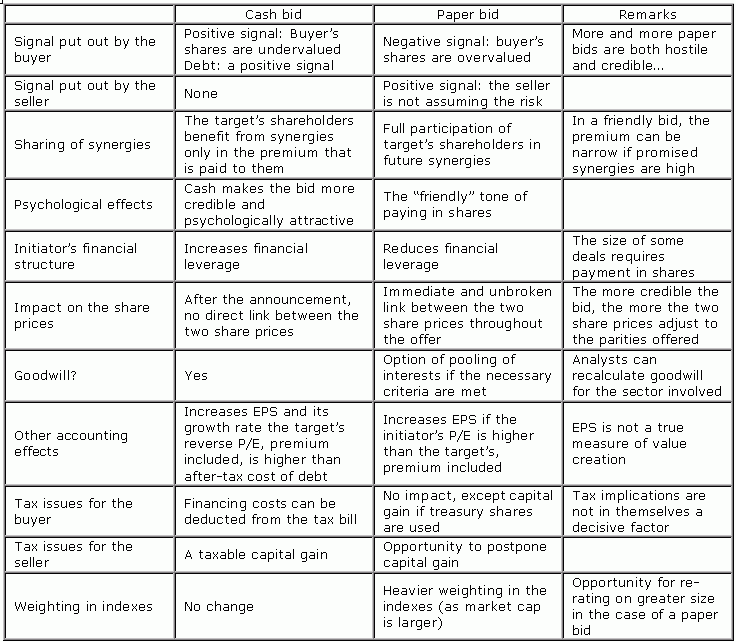Cash or paper in takeover bids?
Takeovers can be paid
for in either cash or the shares ("paper") of the acquiring company.
For shareholders of the target company, cash offers a simple exit, while a share-exchange
or paper bid offers a stake in a broader industrial venture. For the buyer,
the paper/cash decision depends mostly on how it wants to finance the deal.
Cash means (at least in the short term) having to take on debt, while paper
is an obvious form of equity financing.
But in practice the choice is not always so clear, and the buyer can offer both
cash and shares, or a choice of cash or paper, or so-called contingency value
rights (CVRs).
Moreover, a cash bid can be financed after the fact, in part or in its entirety,
by an issue of new shares. So it is clear that, unlike a paper bid, cash offers
flexibility in how the deal is financed, as it offers the buyer the flexibility,
after the deal is done, of deciding how much of the deal it wants to finance
with equity or hybrid securities. Lafarge's takeover of Blue Circle, for example,
was financed partly by new shares (€1.2bn) and partly by convertible bonds
(€1.5bn).
The table below summarises the main criteria in choosing between cash and paper:
